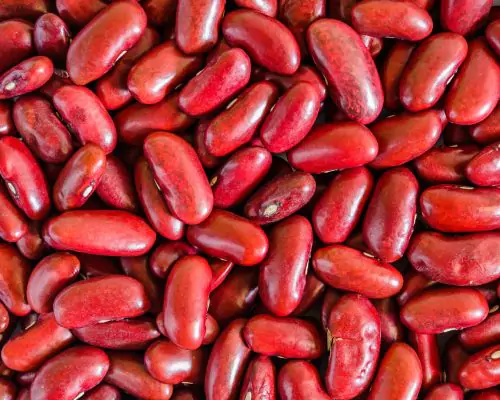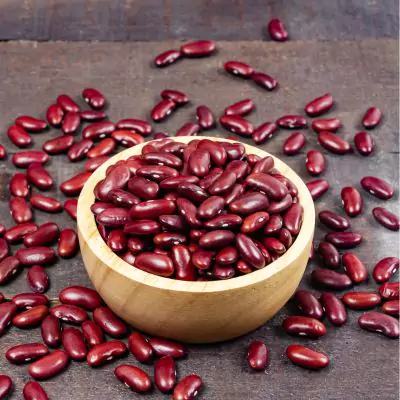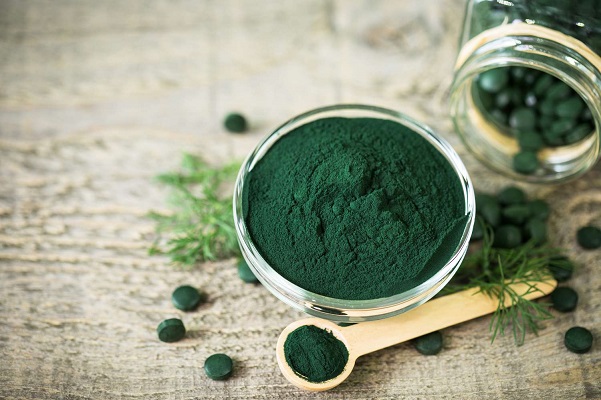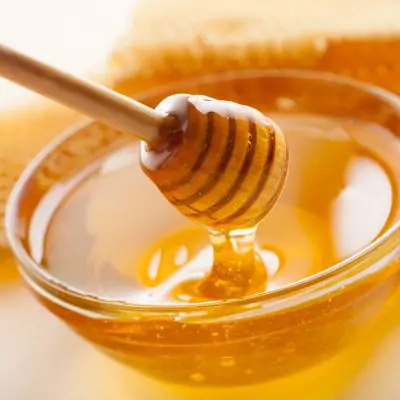On This Page
Overview
Phaseolus vulgaris also referred to as kidney beans or in the common language rajma, is a type of dried legume. Due to its resemblance to the human kidney, the name was inspired by it. Additionally, kidney beans are a good source of fiber and have protein levels comparable to those of vegetables. They are both good alternatives to meat products and vegan. They are particularly renowned for their distinctive appearance and give a delectable flavor and texture to well-known recipes. Their advantageous nutrients are proven to lower the risk of cardiovascular disease and cancer.
Synonyms of Kidney Beans
- Kidney bean
- Rajma
- Surkh (red) lobia
- Phaseolus vulgaris
Nutritional Facts of Kidney Beans
Half a cup of rajma contains:-
| Calories: | 105 |
| Carbohydrates: | 19 grams |
| Protein: | 7 grams |
| Fat: | 1 gram |
| Sugars: | 2 grams |
Phytochemical Constituents of Kidney Beans
- Arabinose
- Galactose
- Mannose and galacturonic acid
Therapeutic Uses of Kidney Beans
- Prevents Cancer
Kidney beans help lower the risk of developing cancer, including colon and pancreatic cancer. As these beans are fibrous and help to prevent intestinal cancer. These fibers are fermented by bacteria when they reach our colon.
- Supports Weight Loss
Rajma is one of the greatest legumes to include in a weight loss diet plan because of its quantity of soluble fiber and protein. Rajma keeps you full, delays stomach emptying, and aids in weight loss. Rajma contains an alpha-amylase inhibitor, which prevents the digestion and absorption of starch and promotes weight loss.
- Natural Cleanser
If you frequently eat packaged foods, you should be aware of the number of chemical preservatives you are placing into your body. These preservatives contain sulfites, which are exceedingly harmful to your health.
Molybdenum, a component of kidney beans, aids in the body’s detoxification by reducing the consequences of sulfites. In addition, sulfite allergy sufferers should include kidney beans in their diets because they can lessen their symptoms.
- Controls Blood Sugar
The wonderful legume rajma, which has a low glycemic index and a strong supply of soluble fiber, aids in stabilizing blood sugar levels. Kidney beans are a source of slow-burning carbs that help lower the risk of a blood sugar increase. Additionally, the soluble fibers in rajma enhance insulin sensitivity, lower blood sugar, and help to manage the symptoms of diabetes.
- Controls Digestion
The chemical process known as metabolism occurs within bodily cells. Certain proteins aid in the regulation of these processes. It helps our body to transform food into energy and by this energy, we can do our daily work.
Kidney beans extensively regulate metabolism by balancing the blood’s glycemic index. Additionally, kidney beans’ fiber content supports a healthy metabolism.
- Strengthens Bones
Rajma is a rich source of calcium and magnesium, two vital elements that support bone health and ward off osteoporosis. Rajma has enough levels of folate, which promotes bone health and reduces the risk of osteomalacia and osteoporosis.
Home Remedies Kidney Beans
- Kidney stones
Rajma, or kidney beans, is a successful natural remedy for kidney-related issues. After removing the seeds, boil the pods in hot, filtered water for an hour. Pour the liquid through a strainer and let it cool. To relieve kidney stone discomfort, sip the beverage multiple times during the day.
- Acne
The kidney bean paste can also be applied topically; not be ingested. Rajma is used to cure scars, pimples, and acne. In just a few minutes, kidney bean paste produces noticeable benefits. For best results, use it twice daily. To make paste Take 2 tsp of kidney bean paste after it applies it to the affected area and then let it dry for5 to 10 minutes lastly wash it off with water.
- Obesity
You can use cooked kidney beans. It is essential to eat kidney beans cooked because the raw version contains some dangerous chemicals. People who are obese can benefit from this variety of kidney beans. For best effects, consume this once per day.

Have A Health Issue?
Consult Online
- Dr. Sahil Gupta (B.A.M.S., M.H.A.)
Ayurvedic Allergy Specialist
CEO & Founder of IAFA®
Ayurvedic Aspects of Kidney Beans
Rajma or kidney beans possess laghu and ruksha gunas naturally and, in nature, have a (light and dry qualities) madhura rasa (sweet taste). It has ushna virya (heating power), which balances the Kapha and pitta doshas while adversely affecting the vata and pitta doshas. Further, it enables the sattva and rajas’ mental conditions, which are balancing and encouraging, thereby eliminating tamas or a defeatist mentality.
Daily Dose: Consuming cooked beans daily of at least a half-cup is sufficient
Side Effects of Kidney Beans
- Digestion problems
Bean fiber has two possible effects. The beans can cause bloating, diarrhea, and obstructed intestines when consumed in excess.
Conclusion
Rajma is full of proteins. They are a high-fiber food that also contains important minerals that support bone health, blood sugar control, and improved digestion. These wholesome beans, which are a high source of folate, are also advantageous for a healthy pregnancy. While kidney beans have many advantages and are simple to use in a variety of dishes, they should be consumed in moderation to prevent any potential side effects.
If you notice any kind of allergy or intolerances from Kidney beans, you can consult Dr. Gupta at IAFA where through ayurvedic approaches allergies and other health-related problems are managed successfully and effectively.
References
- Choose My Plate: “Beans and peas are unique foods.”
- Nutrients, phytochemicals and antioxidant activities of 26 kidney bean cultivars – PubMed









